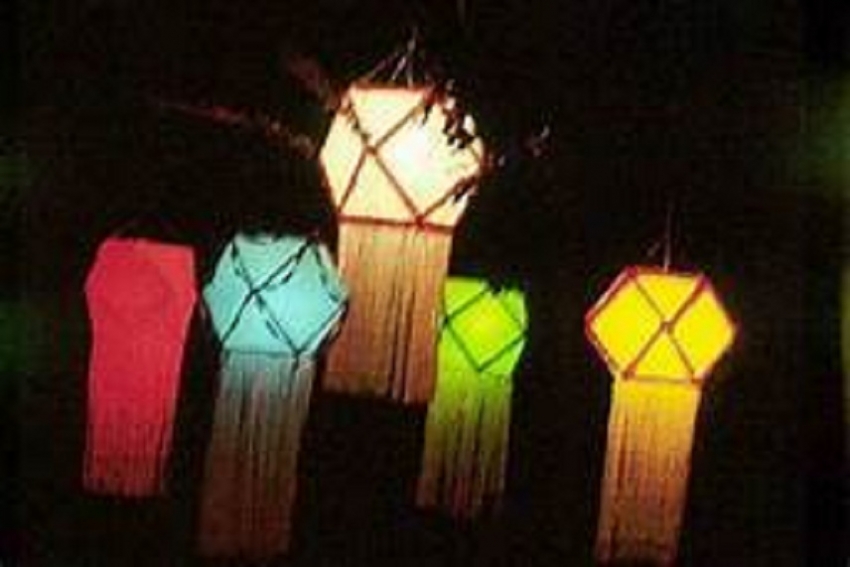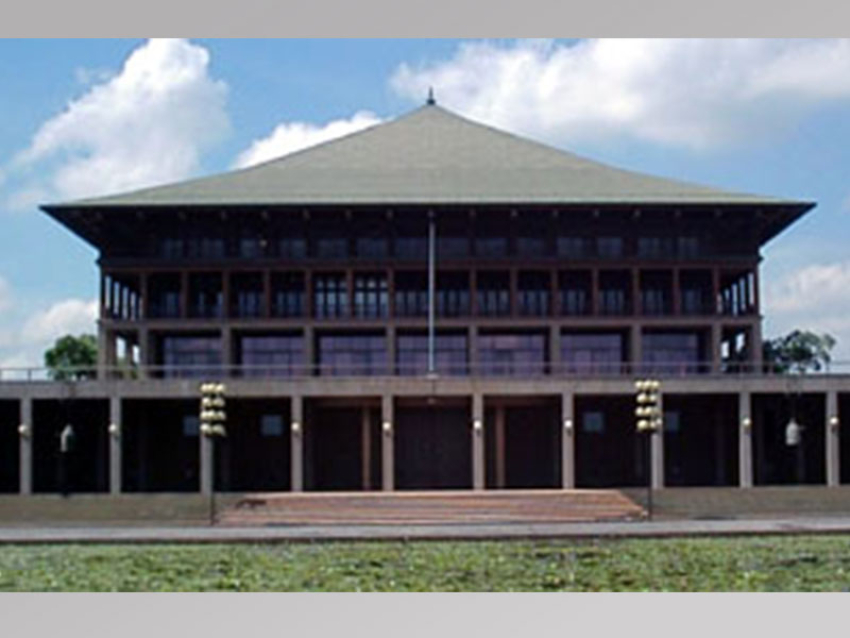Official name Vesākha, Buddha Purnima, Buddha Jayanti, Vaisakha, Vesak, Vaishakhi Purnima
বৈশাখী পুর্ণিমার
包囲祭
衛塞節
वेसाक
វិសាខបូជា
Also called Buddha's Birthday or Buddha Day
Observed by Buddhists and some Hindus in South and Southeast Asia and in East Asia (as Buddha's Birthday)
Type Religious
Significance The birth, enlightenment and death of Gautama Buddha
Observances Meditation, observing the Eight Precepts, partaking of vegetarian food, giving to charity, "bathing" the Buddha
Date Full moon of the month of Vesākha, usually in April (first), May or June (last)
2018 date 29 April
(Sri Lanka, Cambodia, Myanmar and Bangladesh)
30 April (India, Nepal)
29 May (Singapore, Thailand, Malaysia and Indonesia)[1]
2019 date May 19
Frequency annual
Related to Buddha's Birthday
Other related festivals
Laba Festival (in China)
Rohatsu (in Japan)
Vesak (Pali: Vesākha, Sanskrit: Vaiśākha), also known as Buddha Jayanti,[6] Buddha Purnima and Buddha Day, is a holiday traditionally observed by Buddhists and some Hindus on different days in India, Sri Lanka, Nepal, Tibet, Bangladesh, Bhutan, Indonesia, Singapore, Thailand, Cambodia, Laos, Malaysia, Myanmar, Mongolia and the Philippines and in China, Japan, Korea, Taiwan and Vietnam as "Buddha's Birthday" as well as in other parts of the world.[7] The festival commemorates the birth, enlightenment (Buddhahood), and death (Parinirvāna) of Gautama Buddha in the Theravada or southern tradition.[8]
Queen Maya holds onto a branch of a tree while giving birth to the Buddha, who is received by Śakra as other gods look on.
The decision to agree to celebrate Vesak as the Buddha's birthday was formalized at the first conference of the World Fellowship of Buddhists held in Sri Lanka in 1950, although festivals at this time in the Buddhist world are a centuries-old tradition. The resolution that was adopted at the World Conference reads as follows:
That this Conference of the World Fellowship of Buddhists, while recording its appreciation of the gracious act of His Majesty, the Maharaja of Nepal in making the full-moon day of Vesak a Public Holiday in Nepal, earnestly requests the Heads of Governments of all countries in which large or small number of Buddhists are to be found, to take steps to make the full-moon day in the month of May a Public Holiday in honour of the Buddha, who is universally acclaimed as one of the greatest benefactors of Humanity.[9]
On Vesak Day, Buddhists all over the world commemorate events of significance to Buddhists of all traditions: The birth, enlightenment and the passing away of Gautama Buddha. As Buddhism spread from India it was assimilated into many foreign cultures, and consequently Vesak is celebrated in many different ways all over the world. In India, Vaishakh Purnima day is also known as Buddha Jayanti day and has been traditionally accepted as Buddha's birth day.
In 2000, the United Nations resolved to internationally observe the day of Vesak at its headquarters and offices.[10]
The name of the observance is derived from the Pali term vesākha or Sanskrit vaiśākha, which is the name of the lunar month used in ancient India falling in April–May. In Mahayana Buddhist traditions, the holiday is known by its Sanskrit name (Vaiśākha) and derived variants of it. Local renditions of the name vary by language, including:
Assamese: বুদ্ধ পূর্ণিমা Buddho Purnima
Bengali: বুদ্ধ পূর্ণিমা Buddho Purnima, বুদ্ধ জয়ন্তী Buddho Joyonti
Dzongkha: སྟོན་པའི་དུས་ཆེན་༥ འཛོམས་ Dhüchen Nga Zom
Burmese: ကဆုန်လပြည့် ဗုဒ္ဓနေ့ "Full Moon Day of Kason"
Mon: တ္ၚဲကျာ်ဗုဒ္ဓ ဗပေၚ်ပသာ် "Buddha Day Full Moon of Pasāk"
Chinese: 佛陀誕辰紀念日; pinyin: Fótuó dànchén jìniàn rì, 佛誕 (Fódàn, Birthday of the Buddha), 浴佛節 (Yùfójié, Occasion of Bathing the Buddha), 衛塞節 (Wèisāi jié)
Hindi: बुद्ध पूर्णिमा Buddha Pūrṇimā, बुद्ध जयन्ती Buddha Jayantī, वैशाख पूर्णिमा Vaisākh Pūrṇimā
Indonesian: Hari Raya Waisak
Japanese: 花祭り Hanamatsuri (Flower Festival)
Khmer: វិសាខបូជា Visak Bochea
Kannada: ಬುದ್ಧ ಪೌರ್ಣಮಿ Buddha Pournami
Korean Hangul: 석가 탄신일; Hanja: 釋迦誕辰日; RR: Seokka Tanshin-il (Birthday of the Shakyamuni Buddha), Korean: 부처님오신날 (Buddha's Day)
Lao: ວິສາຂະບູຊາ Vixakha Bouxa
Malay: Hari Wesak (هاري ويسق)
Mongolian: Бурхан Багшийн Их Дүйцэн Өдөр (Lord Buddha's Great Festival Day)
Marathi: बुद्ध पोर्णिमा Buddha Pornima
Nepal Bhasa: स्वांया पुन्हि Swānyā Punhi
Nepali: बुद्ध पुर्णिमा Buddha Purnima, बुद्ध जयन्ति Buddha Jayanti
Odia: ବୁଦ୍ଧ ପୂର୍ଣ୍ଣିମା Buddha Purnimā
Sinhala: වෙසක් Vesak
Tamil: விசாகத் திருநாள் Vicākat Tirunāḷ
Tagalog: Araw ni Buddha
Telugu: బుద్ధ పౌర్ణమి Buddha Pournami or alternatively వైశాఖ పౌర్ణమి Vaisakha Pournami
Thai: วิสาขบูชา Wisakha Bucha
Tibetan: ས་ག་ཟླ་བ།, THL: Sa Ga Dawa
Vietnamese: Phật Đản (Birthday of the Buddha)
Celebration
May 2007 had two full moon days: the 1st and the 31st. Some countries (including Sri Lanka, Cambodia and Malaysia) celebrated Vesak on the 1st, and others (Thailand, Singapore) celebrated the holiday on the 31st because of a different local lunar observance. The difference also manifests in the observance of other Buddhist holidays, which are traditionally observed at the local full moon.
Likewise, in 2012, Vesak was observed on 28 April in Hong Kong and Taiwan, on 5 May in Sri Lanka, on 6 May in India and Bangladesh, on 28 May in South Korea and on 4 June in Thailand. (In 1999, the Taiwanese government set Buddha's birthday as the second Sunday of May, the same date as Mother's Day.[11][12]). In 2014, Vesak is celebrated on 13 May in Myanmar, Singapore and Thailand while it is observed on 15 May in Indonesia.
On Vesak, devout Buddhists and followers alike assemble in their various temples before dawn for the ceremonial and honorable hoisting of the Buddhist flag and the singing of hymns in praise of the holy triple gem: The Buddha, The Dharma (his teachings), and The Sangha (his disciples). Devotees may bring simple offerings of flowers, candles and joss-sticks to lay at the feet of their teacher. These symbolic offerings are to remind followers that just as the beautiful flowers would wither away after a short while and the candles and joss-sticks would soon burn out, so too is life subject to decay and destruction. Devotees are enjoined to make a special effort to refrain from killing of any kind. They are encouraged to partake of vegetarian food for the day. In some countries, notably Sri Lanka, two days are set aside for the celebration of Vesak and all liquor shops and slaughter houses are closed by government decree during the two days.
Also birds, insects and animals are released by the thousands in what is known as a 'symbolic act of liberation' of giving freedom to those who are in captivity, imprisoned, or tortured against their will. (The practice, however, is banned in some countries such as Singapore, as it is believed that the released animals are unable to survive long-term and may adversely impact the local ecosystem if they do.)[13]
Some devout Buddhists will wear a simple white dress and spend the whole day in temples with renewed determination to observe the eight precepts.
Young novice monk on Vesak Day Parade
Devout Buddhists undertake to lead a noble life according to the teaching by making daily affirmations to observe the Five Precepts. However, on special days, notably new moon and full moon days, they observe the eight precepts to train themselves to practice morality, simplicity, and humility.
Some temples also display a small statue of the Buddha in front of the altar in a small basin filled with water and decorated with flowers, allowing devotees to pour water over the statue; it is symbolic of the cleansing of a practitioner's bad karma, and to reenact the events following the Buddha's birth, when devas and spirits made heavenly offerings to him.
Devotees are expected to listen to talks given by monks. On this day, monks will recite verses uttered by the Buddha twenty-five centuries ago to invoke peace and happiness for the government and the people. Buddhists are reminded to live in harmony with people of other faiths and to respect the beliefs of other people as the Buddha taught.
Bringing happiness to others
File:Korean Minute- Buddha's Birthday Festival.webm
Video Korean Buddhist monks perform ritual dances and music on Buddha's Birthday.
Celebrating Vesak also means making special efforts to bring happiness to the unfortunate like the aged, the handicapped and the sick. To this day, Buddhists will distribute gifts in cash and kind to various charitable homes throughout the country. Vesak is also a time for great joy and happiness, expressed not by pandering to one's appetites but by concentrating on useful activities such as decorating and illuminating temples, painting and creating exquisite scenes from the life of the Buddha for public dissemination. Devout Buddhists also vie with one another to provide refreshments and vegetarian food to followers who visit the temple to pay homage to the Enlightened One.[citation needed]
Paying homage to the Buddha
Tradition ascribes to the Buddha himself instruction on how to pay him homage. Just before he died, he saw his faithful attendant Ananda, weeping. The Buddha advised him not to weep, but to understand the universal law that all compounded things (including even his own body) must disintegrate. He advised everyone not to cry over the disintegration of the physical body but to regard his teachings (The Dhamma) as their teacher from then on, because only the Dhamma truth is eternal and not subject to the law of change. He also stressed that the way to pay homage to him was not merely by offering flowers, incense, and lights, but by truly and sincerely striving to follow his teachings.
Dates of observance
The exact date of Vesak is based on the Asian lunisolar calendars and is primarily celebrated in Vaisakha month of the Buddhist calendar and the Hindu calendar, and hence the name Vesak. In Nepal, which is considered the birth-country of Buddha, it is celebrated on the full moon day of the Vaisakha month of the Hindu calendar, and is traditionally called Buddha Purnima, Purnima meaning the full moon day in Sanskrit. In Theravada countries following the Buddhist calendar, it falls on a full moon Uposatha day, typically in the 5th or 6th lunar month. Nowadays, in Sri Lanka, Nepal, India, and Bangladesh, Vesak/Buddha Purnima is celebrated on the day of the full moon in May in the Gregorian calendar. In Thailand, Laos, Indonesia, Vesak is celebrated on the fourteenth or fifteenth day of the fourth month in the Chinese lunar calendar. In China, and Korea, Vietnam, Buddha's Birthday is celebrated on the eighth day of the fourth month in the Chinese lunar calendar, in Japan the same day but in the Gregorian calendar. The date varies from year to year in the Western Gregorian calendar, but usually falls in April or May. In leap years it may be celebrated in June. In Bhutan it is celebrated in 15th day of fourth month of Bhutanese calendar based on lunar calendar.
In the following table, year numbers in the range 2500–2599 are BE (Buddhist Era).
Year
(CE) Thailand[14] Singapore[15] Laos Myanmar Sri Lanka[16] Cambodia[17] Indonesia[18] Nepal, Bangladesh &
India[19][20][21] China Malaysia[22] Vietnam[23] Bhutan[24]
2001 7 May 2544 7 May 6 May 2545 7 May 2545 7 May 2545 7 May 2545 7 May 30 May 7 May 6 June
2002 26 May 2545 27 May 26 May 2546 26 May 2546 26 April 2546 26 May 2546 26 May 19 May 26 May 26 May
2003 15 May 2546 15 May 15 May 2547 15 May 2547 15 May 2547 16 May 2547 16 May 8 May 15 May 15 May
2004 2 June 2547 2 June 3 May 2548 4 May 2548 3 May 2548 3 June 2548 3 May 26 May 3 May 2 June
2005 22 May 2548 23 May 22 May 2549 23 May 2549 22 May 2549 24 May 2549 23 May 15 May 22 May 22 May
2006 12 May 2549 12 May 11 May 2550 12 May 2550 12 May 2550 13 May 2550 13 May 5 May 12 May 12 May
2007 31 May 2550 31 May 31 May 2550 30 April 2551 1 May 2551 1 May 2551 1 June 2551 2 May 24 May 31 May 31 May
2008 19 May 2551 19 May 18 May 2551 19 May 2552 19 May 2552 19 May 2552 20 May 2552 20 May 12 May 19 May 19 May
2009 8 May 2552 9 May 8 May 2552 8 May 2553 8 May 2553 8 May 2553 9 May 2553 8 May 2 May 9 May 9 May
2010 28 May 2553 28 May 28 May 2553 27 April 2554 27 May 2554 28 April 2554 28 May 2554 27 May 21 May 28 May 28 May
2011 17 May 2554 17 May 17 May 2554 17 May 2555 17 May 2555 17 May 2555 17 May 2555 17 May 10 May 17 May 17 May
2012 4 June 2555 5 May 5 May 2555 5 May 2556 5 May 2556 5 May 2556 6 May 2556 6 May 28 April 5 May 5 May
2013 24 May 2556 24 May 24 May 2556 24 May 2557 24 May 2557 24 May 2557 25 May 2557 25 May 24 May 24 May 24 May
2014 13 May 2557 13 May 13 May 2557 13 May 2558 14 May 2558 13 May 2558 15 May 2558 14 May 13 May 13 May
2015 1 June 2558 1 June 2 May 2558 2 May 2559 3 May 2559 3 May 2559 2 June 2559 4 May 25 May 3 May 1 June
2016 20 May 2559 21 May 21 May 2560 21 May 2560 21 May 2560 22 May 2560 21 May 14 May 21 May 14 May 21 June
2017 10 May 2560 10 May 10 May 2561 10 May 2561 10 May 2561 11 May 2561 10 May 3 May 10 May 10 May 21 June
2018 29 May 2561 29 May 29 April 2562 29 April 2562 29 April 2562 29 May 2562 22 May 22 May 29 May 29 May 29 May
2019 20 May 2562 19 May 18 May 2563 18 May 2563 18 May 2563 19 May 2563 18 May 12 May 19 May 19 May 17 June
2020 7 May 6 May 2564 7 May 2564 6 May 2564 7 May 2564 7 May 30 April 7 May 6 June




















